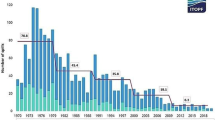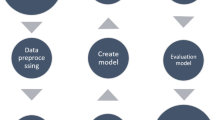Abstract
Oil spill is a type of pollution which affects both directly and indirectly the human beings, economy of the nation, and the marine life. Oil on top of the ocean damages numerous aquatic organisms since it stops sunlight that is sufficient in achieving the surface of the ocean and lowers dissolved oxygen levels. Oil-coated birds and marine mammals can perish hypothermia because crude oil destroys the insulation. In addition, ingested oil is poisonous to affected creatures and habitat. The answer towards the above-mentioned issues is towards building a methodology employing deep learning towards precisely recognizing oil spills and oil-like spill from ocean for taking appropriate action. So, we in this paper have deployed different pre-trained deep learning models towards classification of oil spill in ocean. In addition, different deep learning models performance are compared and validated in terms of accuracy and losses for proposing the best deep learning model for classification of oil spill in ocean.
Access this chapter
Tax calculation will be finalised at checkout
Purchases are for personal use only
Similar content being viewed by others
References
Singha S, Bellerby TJ, Trieschmann O (2013) Satellite oil spill detection using artificial neural networks. IEEE J Selected Topics Appl Earth Observations Remote Sens 6(6):2355–2363
Solberg AHS, Brekke C, Husoy PO (2007) Oil spill detection in radarsat and envisat SAR images. IEEE Trans Geosci Remote Sens 45(3):746–755
Ramalaho GLB, Medeiros FNS (2006) Using boosting to improve oil spill detection in SAR images. In: Proceedings of 18th international conference on pattern recognition. IEEE, Hong Kong, China, pp 1–4
Topouzelis KN (2008) Oil spill detection by SAR images: dark formation detection, feature extraction and classification algorithms. Sensors 8(10):6642–6659
Cantorna D, Dafonte C, Iglesias A, Arcay B (2019) Oil spill segmentation in SAR images using convolution neural network . a comparative analysis with clustering and logistic regression algorithms. Appl Soft Comput 84:1–13
Zeng K, Wang Y (2020) A deep convolutional neural network for oil spill detection from spaceborne SAR images. Remote Sensing 12(6):1–123
Krestenitis M, Orfanidis G, Ioannidis K (2019) Early detection of oil spills in satellite images using deep CNN. In: Proceedings of 25th international conference on multimedia modeling. Springer, Thessaloniki, Greece, pp 1–12
Author information
Authors and Affiliations
Corresponding author
Editor information
Editors and Affiliations
Rights and permissions
Copyright information
© 2023 The Author(s), under exclusive license to Springer Nature Singapore Pte Ltd.
About this paper
Cite this paper
Anand, V., Patni, A., Sankaranarayanan, S. (2023). Oil Spill Detection in Ocean Using Deep Learning. In: Fong, S., Dey, N., Joshi, A. (eds) ICT Analysis and Applications. Lecture Notes in Networks and Systems, vol 517. Springer, Singapore. https://doi.org/10.1007/978-981-19-5224-1_35
Download citation
DOI: https://doi.org/10.1007/978-981-19-5224-1_35
Published:
Publisher Name: Springer, Singapore
Print ISBN: 978-981-19-5223-4
Online ISBN: 978-981-19-5224-1
eBook Packages: EngineeringEngineering (R0)




